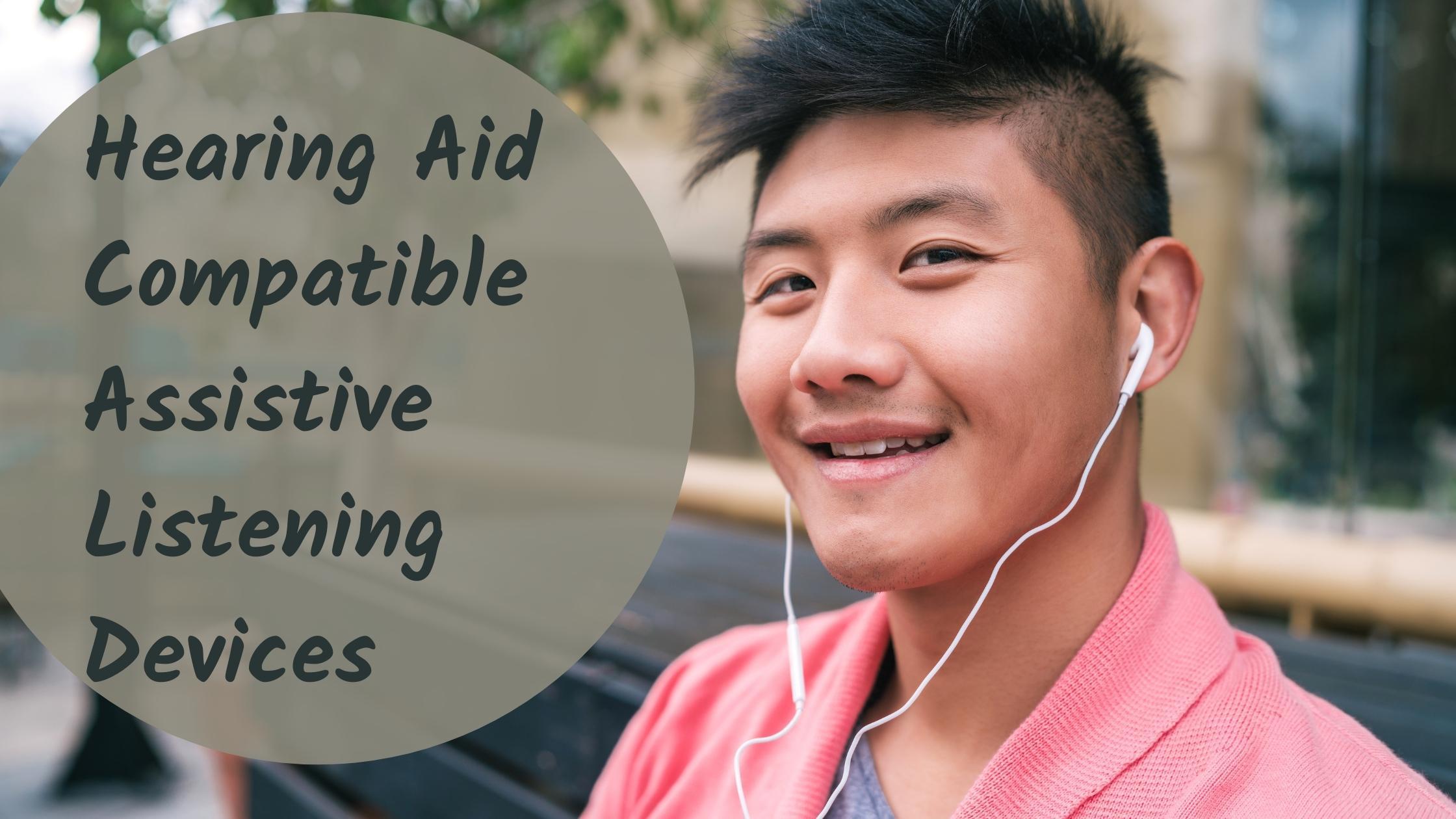
- A Guide to Different Hearing Aid Styles - May 6, 2025
- What is the Lifespan of Hearing Aid Batteries? - April 27, 2025
- Understanding the Different Types of Assistive Listening Technology - April 15, 2025
Hearing aid technology has advanced considerably in recent years, significantly improving the user experience. Hearing aids come with a wide range of features and options that make them easy to incorporate into your daily life and maximize your hearing in any situation.
But there are some situations where hearing aids need a little more help, and that is where Assistive Listening Devices (ALDs) come in. ALDs work with hearing aids and improve sound quality, making it easier to hear in difficult situations. Hearing aids can help you hear better in public places while watching TV and on the phone.
With so many alternatives available today, it might be challenging to determine which ALD will work best for your situation. ALDs can be classified into the following types.
Bluetooth
Hearing aids that use Bluetooth technology can link wirelessly to other electronic devices such as smartphones, speakers, and laptops. The audio is sent directly into your hearing aids when you connect wirelessly. This increases sound quality and enhances listening experiences while watching TV, listening to a podcast, talking on the phone, and so on.
This is a fantastic way to connect your gadgets and switch between them quickly. Bluetooth technology is convenient and improves hearing clarity for hearing loss when on the phone or watching TV.
Hearing Loops
Hearing aid technology that enhances the sound in public places is known as audio induction loops. Hearing loops are particularly beneficial in public places such as:
airports, stadiums, theaters, classrooms, and check-out counters, among other places.
Many hearing aid devices include a small telecoil that picks up signals from hearing loops in a public environment, and it’s then turned into a sound that’s tailored to the user’s preferences. Hearing loops are simple to use, requiring only that you turn on the Telecoil option (on your hearing device) and can be used in various situations. They make it easier for people with hearing loss to hear in surroundings requiring important information in a noisy place, like flight announcements on an airport public address system.
Amplified telephones
Amplified telephones are developed for those who suffer from hearing loss and allow you to adjust the level to match your needs. They eliminate feedback and other disturbances that make hearing difficult, especially for people who wear hearing aids. Hearing loops and amplified phones both work in the same way. Your hearing aids’ telecoil option picks up sound from your phone and adapts it to fit your individual hearing needs. If you have a landline, amplified telephones are particularly useful because it improves the existing sound you get from the phone.
FM Systems
To convey amplified sounds to hearing aids, FM systems use radio waves, and a microphone that emits soundwaves and a receiver are used in FM systems. The receiver can be integrated into hearing aids or stand-alone as part of a pair of headphones or a neck loop.
A person talks into a microphone further away, and the listener’s receiver picks up the audio via radio waves. If you’ve ever been on a guided tour, you’re probably already familiar with this technology.
Personal amplifiers
Personal amplifiers are compact (handheld) devices with a microphone that magnifies the sound you’re attempting to hear while cutting down on background noise. The sound is absorbed by a receiver worn by the listener (hearing aids, headphones, earbuds). This option is preferable in quieter situations and may not be required if you use the ALDs previously described.
Other ALDs
There is a variety of other technology that can help with hearing and these forms of ALDs. Additional ADLs that you might find helpful are:
- Captioning services
- Voice recognition software
- Alerting systems
ALDs are specially developed to help you hear better and navigate your daily life more quickly, but you should start with a hearing test and hearing aids if you think you have hearing loss. If you’re interested in hearing aids, we recommend speaking with us at Beverly Hills Hearing Center to walk you through your options. It’s critical to determine your hearing needs and talk about what would work best for you and your lifestyle.
